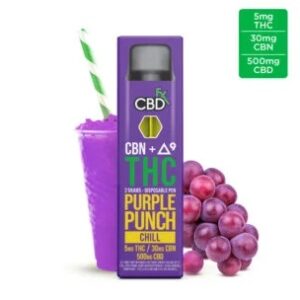
Navigating the world of cannabis can feel like decoding a complex puzzle, especially when terms like D9 THC and THCA pop up. But fear not! We’re here to break down the differences between these two compounds in a fun, trustworthy, and informative way. Whether you’re a seasoned cannabis enthusiast or new to the scene, understanding these differences can help you make informed decisions about what’s best for your needs.
What is D9 THC?
Delta-9 Tetrahydrocannabinol, or D9 THC, is the best-known psychoactive cannabinoid in cannabis. THC produces the ‘high’ from using marijuana, effectively tickling the brain’s endocannabinoid system into imparting euphoria, altered sensory perception, changes in mood and all of its reputed therapeutic benefits. THC is known to bond with cannabinoid receptors in the brain, specifically the CB1 receptors.
Benefits of D9 THC:
- D9 THC for Pain Relief: Pain relief is the most popular use of cannabis. D9 THC is well known for its pain-relieving effects and is the primary target for chronic pain sufferers.
- Mood Enhancement: It can make you feel good; it can be an excellent panacea for stress and depression.
- Appetite stimulation: D9 THC is notorious for sparking the ‘munchies’ and helping those with poor appetites.
What is THCA?
Tetrahydrocannabinolic Acid (THCA) is the acetate precursor to D9 THC. It’s the naturally occurring non-psychoactive compound produced in raw or live cannabis and is then converted to psychoactive D9 THC through decarb (heat). THCA is psychoactive but, ironically, THCA does NOT produce a high, making it an attractive choice for those seeking the benefits to cannabis medicine without the psychoactivity or psychotropics.
Benefits of THCA:
- Anti-Inflammatory: THCA acts as a potent anti-inflammatory that can be helpful with arthritis.
- Neuroprotective Properties: It offers protection against neurodegenerative diseases.
- Antiemetic: nausea and vomiting can often be alleviated with THCA, which is being explored as a potential safe chemotherapy aid.
The Effects: High vs. Health
The most pronounced distinction between THCa vs delta 9 is the intoxicating high. D9 THC is all about the high, ranging from cerebral, energizing, creative and uplifting to deeply relaxing physical sensations, typically depending on the strain as well as personal response. It’s been popular for both recreational purposes, as well as offering relief for a wide range of uncomfortable conditions, from anxiety to hunger loss to aches/pains/stiffness and even some forms of insomnia; in the world of medical cannabis and healing CBD markets, THC can be considered the star of the show.
- THCA, though, is the square teetotalling cousin you bring to the party. No psychoactive punch means the focus is on possible health benefits instead. Preliminary research and personal testimonies suggest that THCA might have anti-inflammatory, neuroprotective and antiemetic benefits to explore. This can be an appealing entry point to the therapeutic effects of cannabis without the accompanying high.
Legality and Accessibility
• As for legality, that gets murkier D9 THC is strictly illegal under US federal law. However, many US states legalized some form of it (either medical or recreational), so the legal status of D9 THC under the law right now is very patchwork. Where you live might have no access to D9 THC products, while others live in places where they’re readily available.
• THCA, in raw form, avoids these legal problems altogether – you can sell it – because it’s not psychoactive. Except, as soon as you decarboxylate it, it turns into D9 THC, and is off-limits. This, it seems to me, is how you can walk that narrow legal line that enables the sale of raw cannabis products.
D9 THC vs THCA: The Showdown
So, when should one choose D9 THC and when should one choose THCA? Once again it comes down to what you’re looking for from your cannabis. If you’re using cannabis looking for therapeutic effects but do not want the high, opt for THCA. Otherwise, if you’re looking to get stoned and heal, D9 THC is your go-to.
D9 THC:
Pros:
- Potent psychoactive effects.
- Wide range of therapeutic benefits.
- Abundantly available in various cannabis products.
Cons:
- May induce anxiety or paranoia in some users.
- Legal restrictions in certain areas.
THCA:
Pros:
- Non-psychoactive, offering therapeutic benefits without the high.
- Potential to treat various medical conditions without psychoactive effects.
Cons:
- Limited availability in products.
- Requires careful storage to prevent conversion to D9 THC.
Web Ratings & Consumer Feedback
Depending on their water solubility – both are able to activate receptors for cannabinoids that our bodies naturally produce, like anandamide. That is probably the original use: to introduce the body to the pleasurable sensations of cannabinoids, without the high. But both THCA and D9 THC have become favored compounds, and today fans risk comparing one cannabinoid to the other. Connoisseurs praise the painkilling and mood-enhancing effects of D9 THC, while proponents of THCA promote it as an anti-inflammatory and neuroprotective compound. Online forums and reviews show a growing interest in THCA because it offers medicinal benefits without the high. But D9 THC remains a favorite for those seeking a high too.

